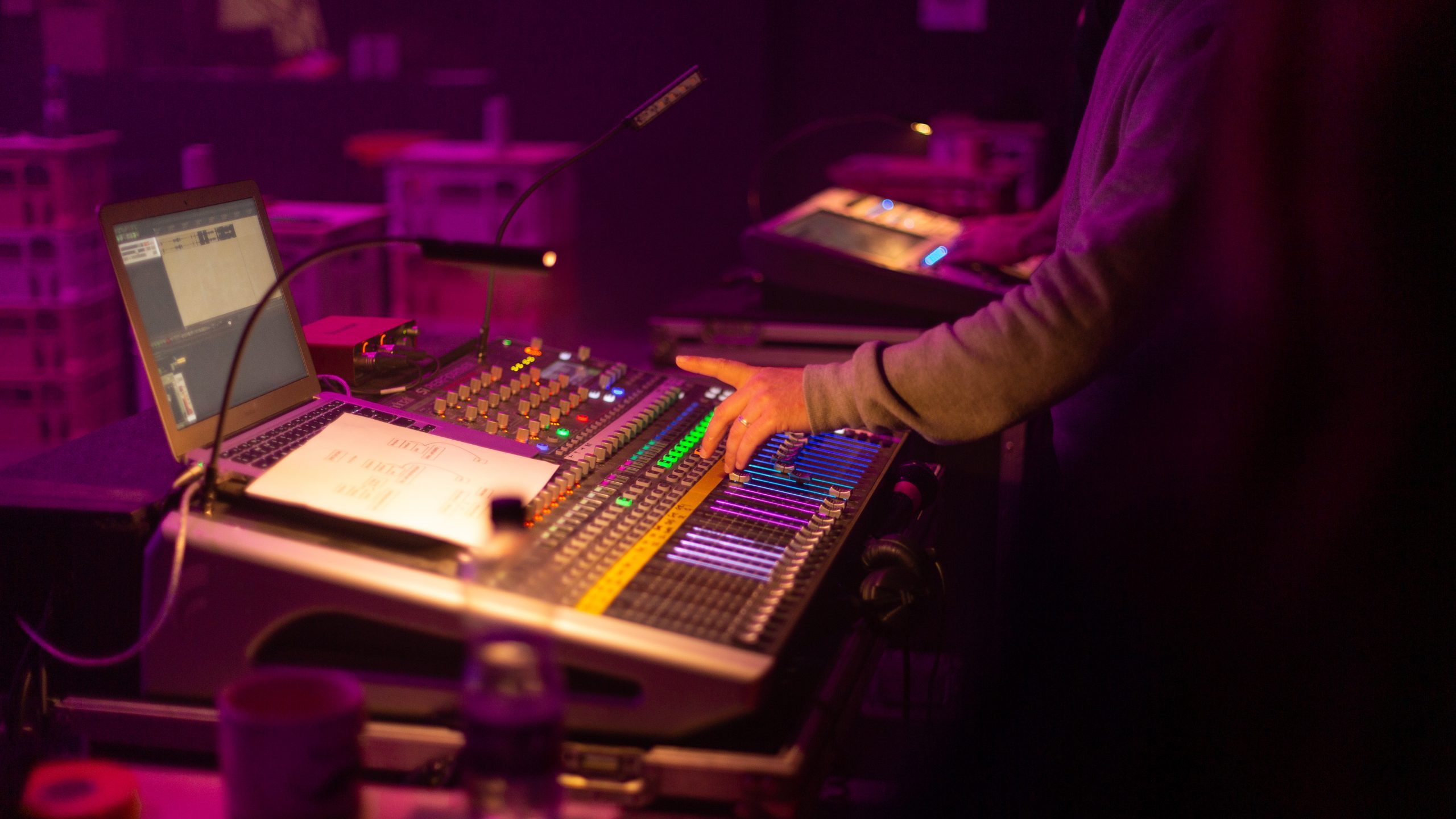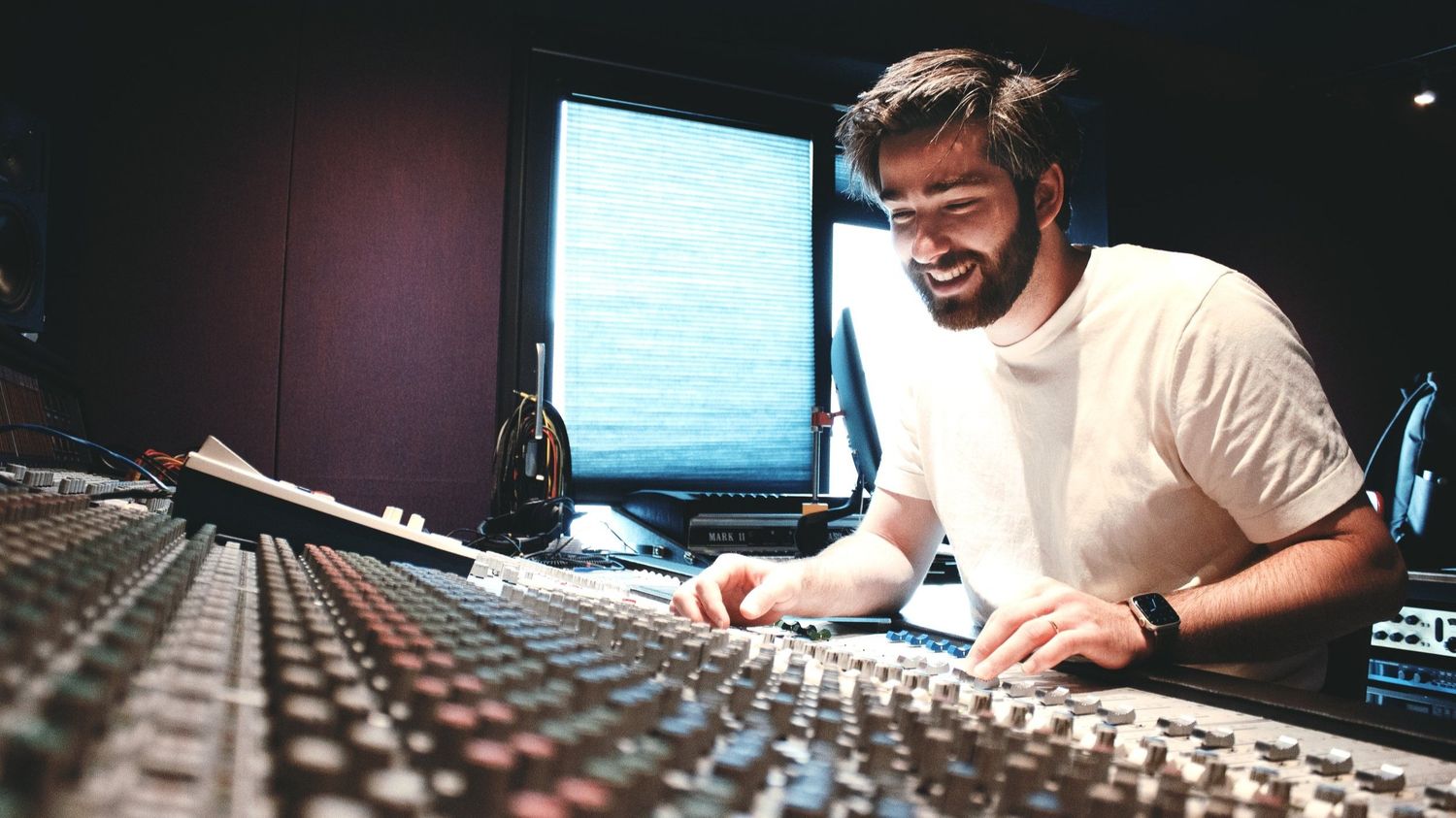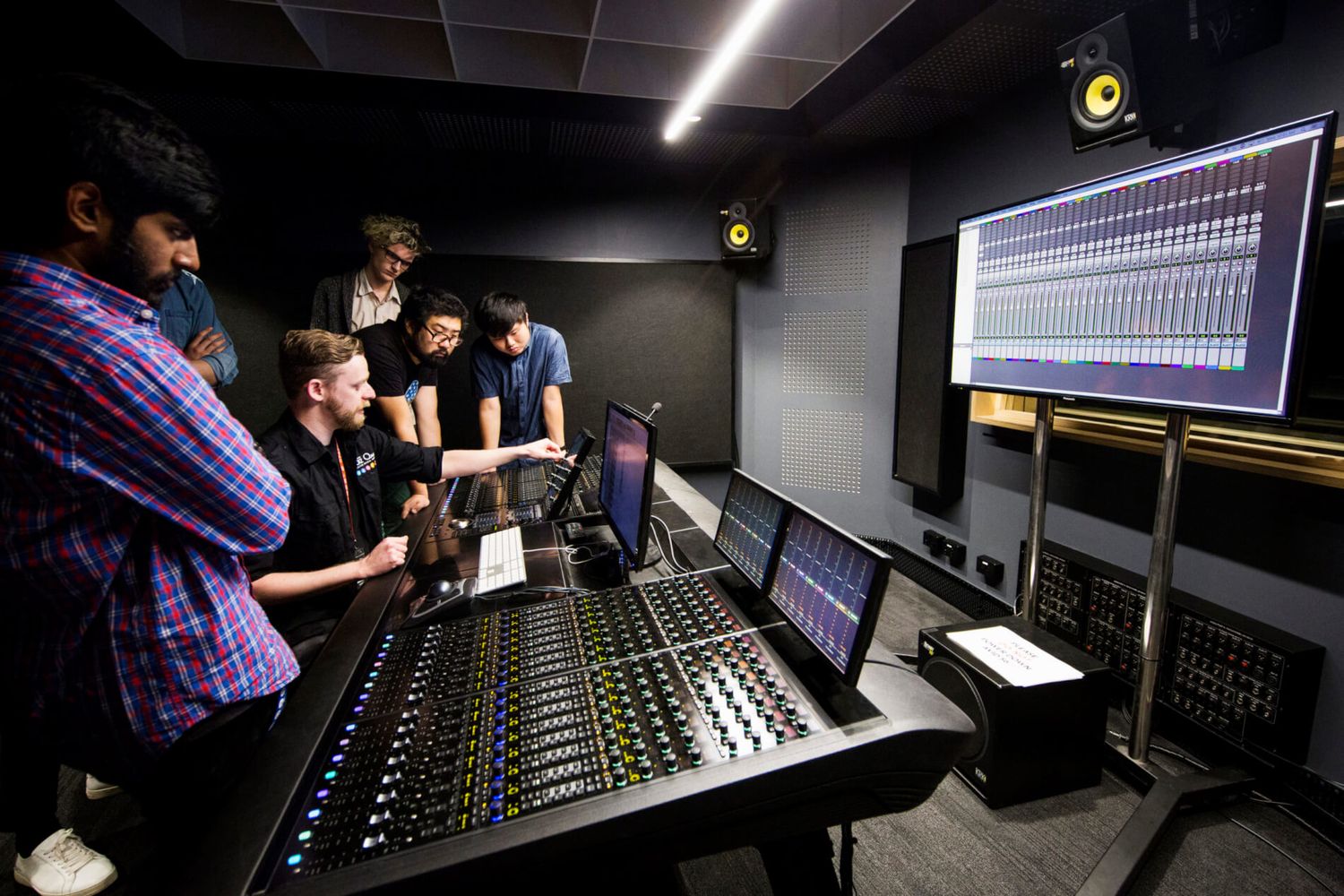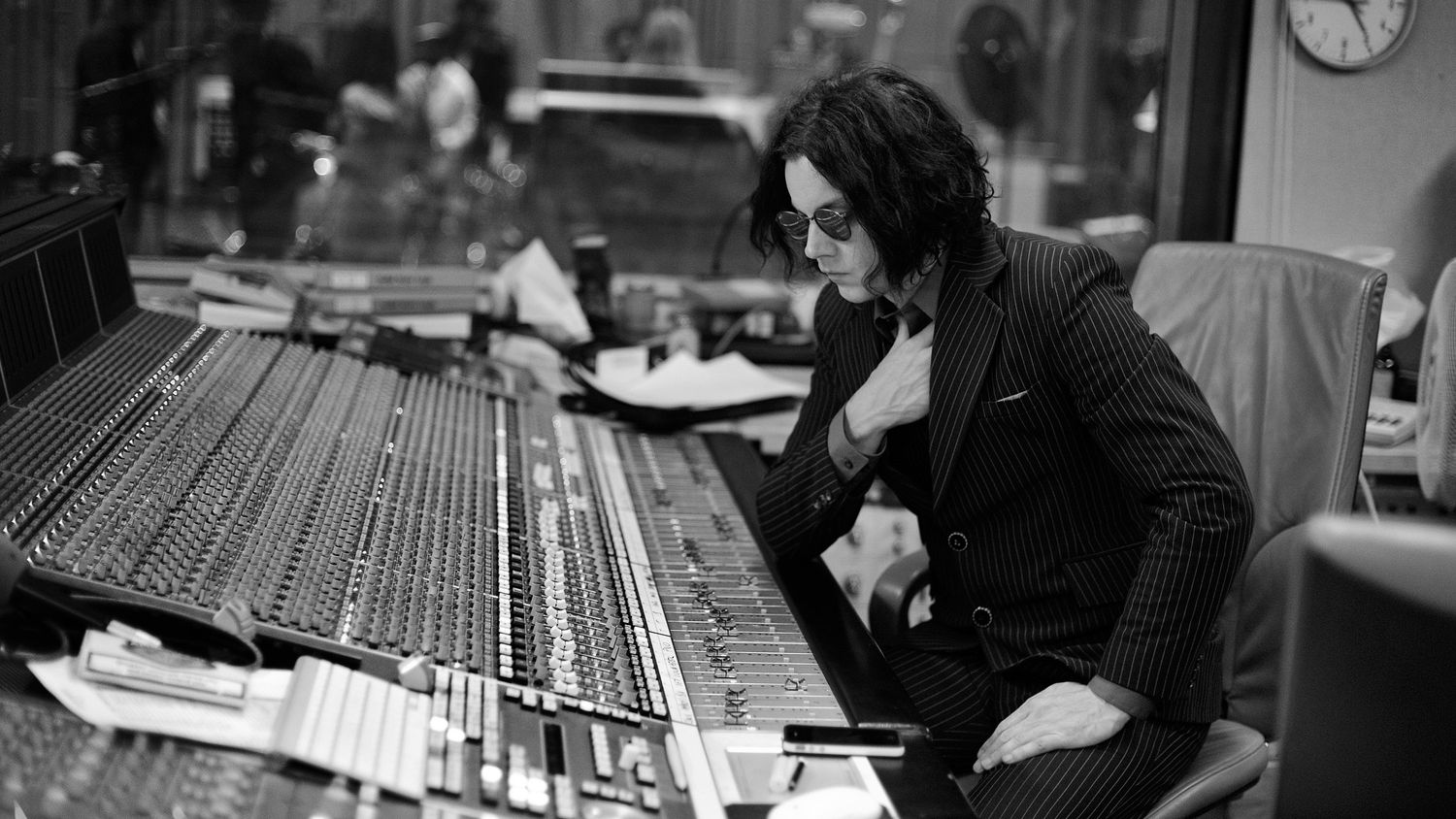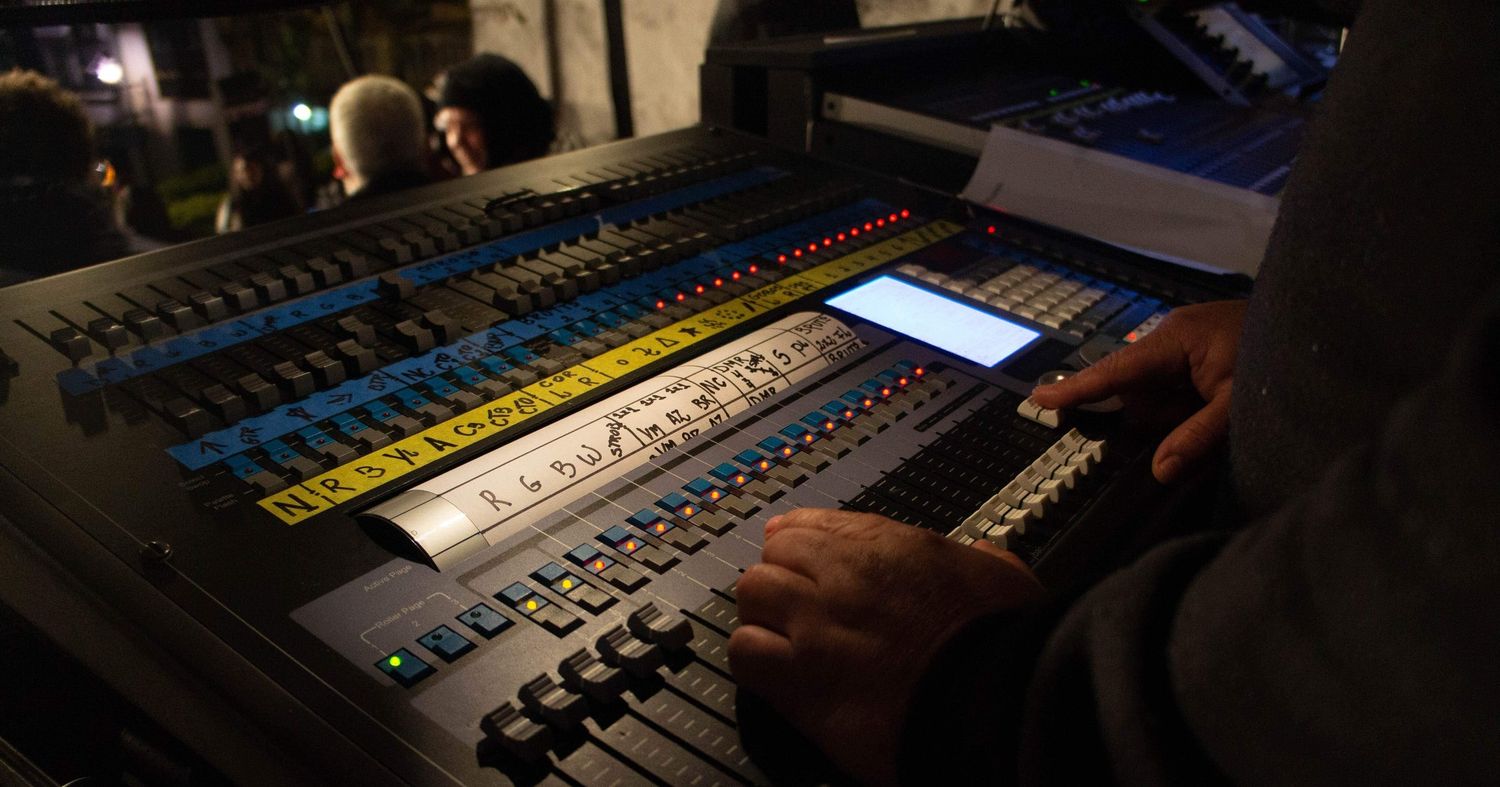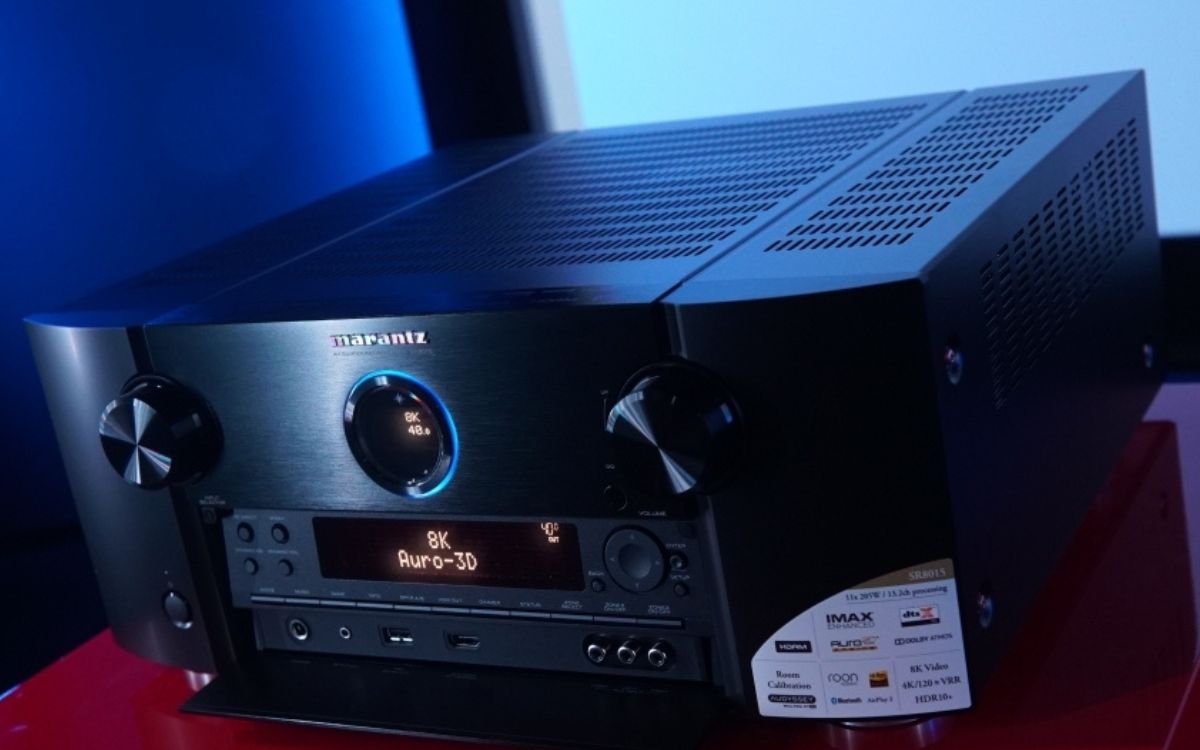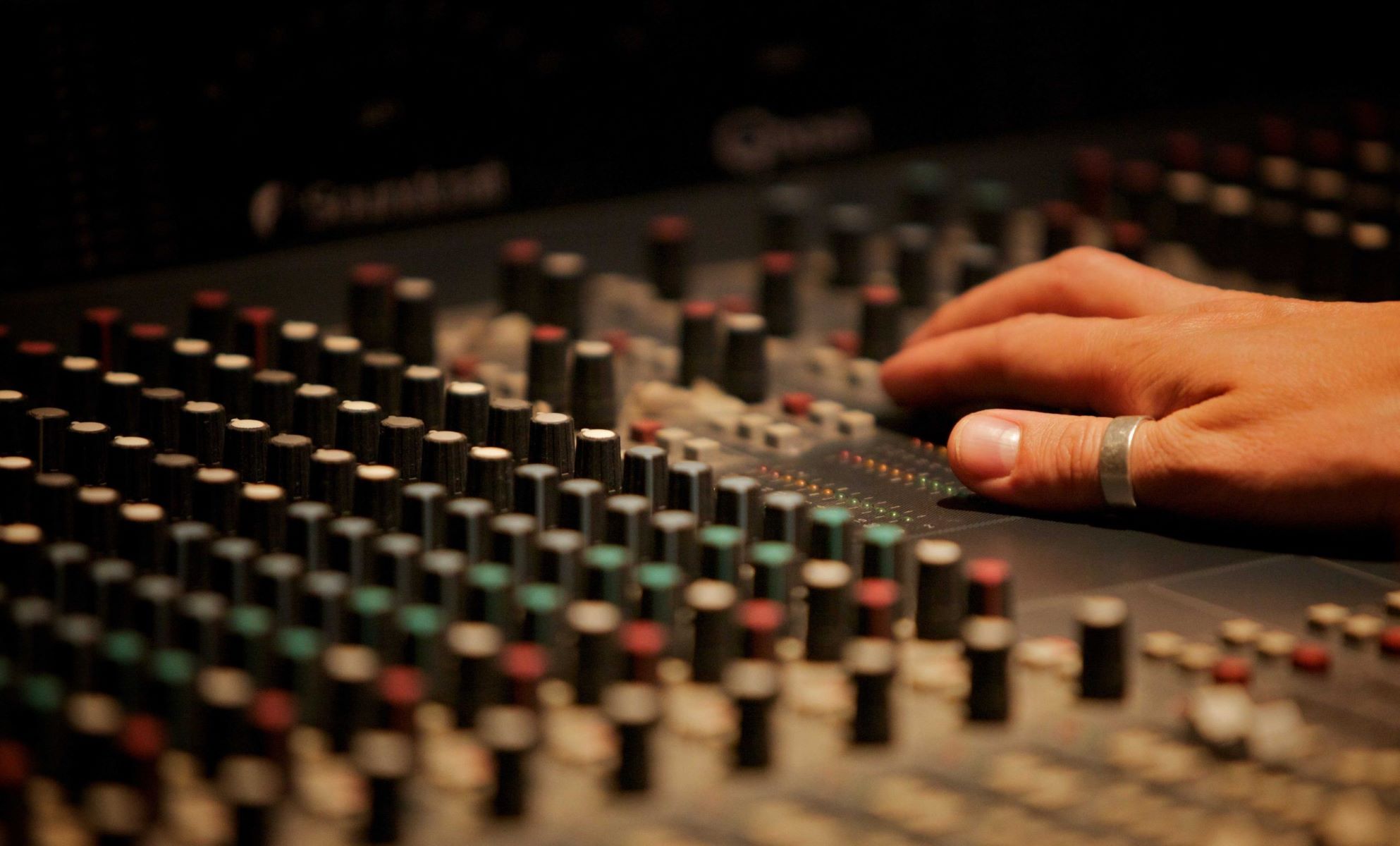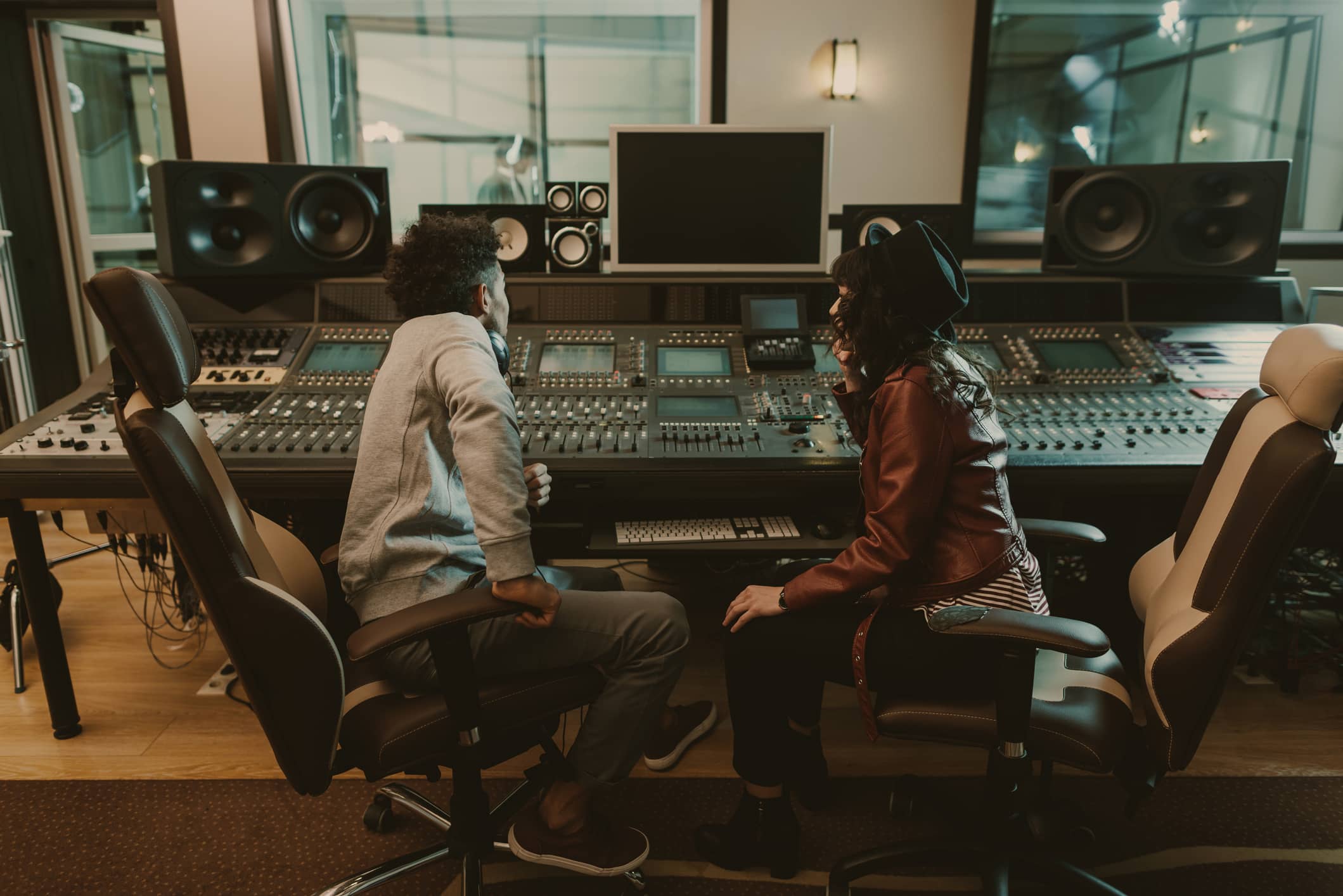Home>Production & Technology>Sound Engineer>What Ability Do You Need To Be A Sound Engineer?
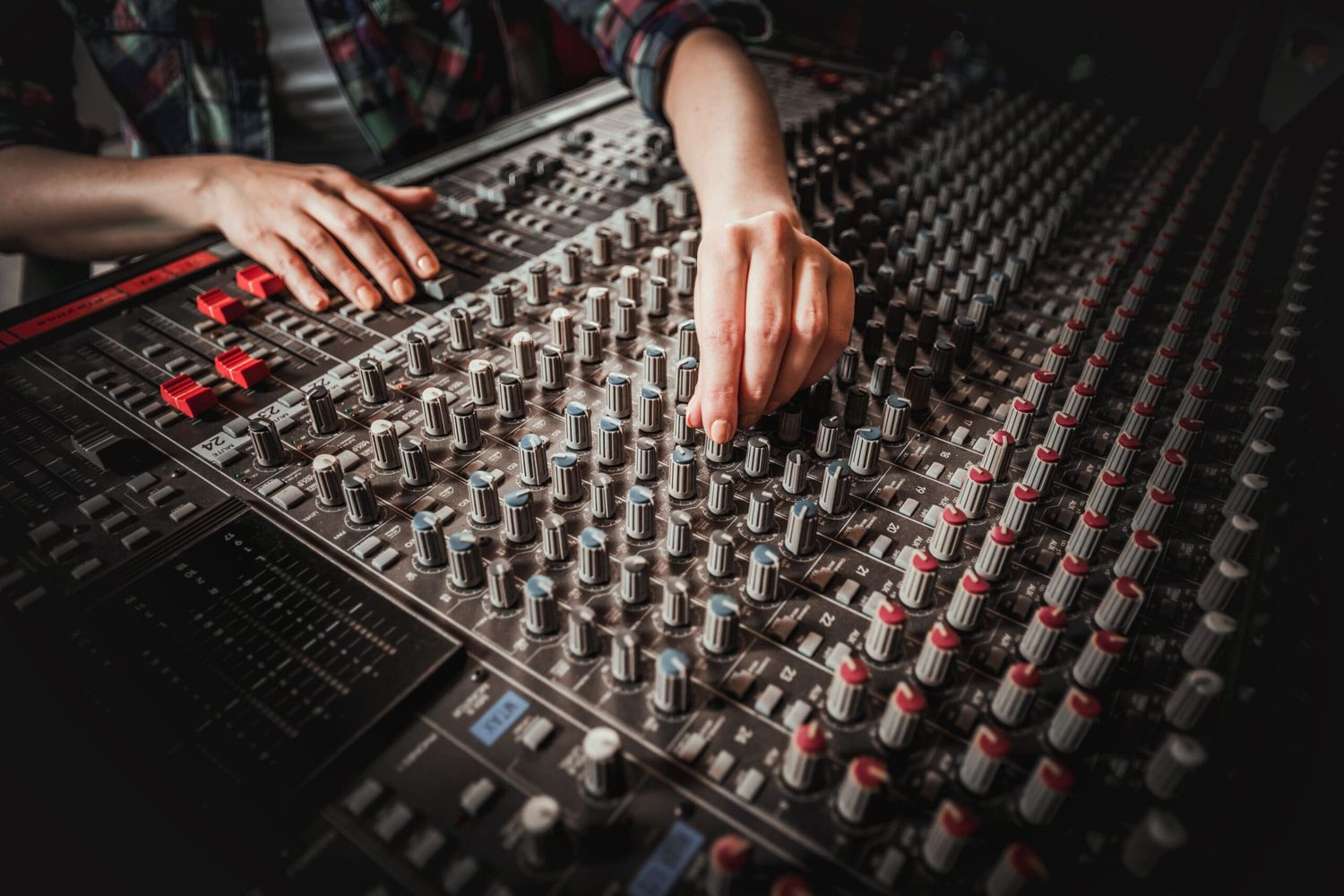

Sound Engineer
What Ability Do You Need To Be A Sound Engineer?
Published: March 7, 2024
Discover the essential skills and abilities required to excel as a sound engineer. Learn what it takes to succeed in the dynamic field of sound engineering.
(Many of the links in this article redirect to a specific reviewed product. Your purchase of these products through affiliate links helps to generate commission for AudioLover.com, at no extra cost. Learn more)
Table of Contents
Introduction
Becoming a sound engineer is a fascinating journey that requires a unique blend of technical expertise, problem-solving skills, and creativity. Sound engineers play a crucial role in the music, film, television, and live event industries, shaping the way audiences experience audio content. To excel in this dynamic field, individuals need to possess a diverse set of abilities that enable them to navigate the complexities of audio production and engineering.
Sound engineering is not just about operating equipment; it's about understanding the intricate science behind sound and using that knowledge to create captivating auditory experiences. From recording and mixing to live sound reinforcement, sound engineers are responsible for ensuring that every sonic element resonates with precision and emotion.
In this article, we will delve into the essential abilities that aspiring sound engineers need to cultivate in order to thrive in this competitive and rewarding profession. By exploring the technical knowledge, problem-solving skills, attention to detail, communication skills, creativity, and adaptability required in the field, we will gain a comprehensive understanding of the multifaceted nature of sound engineering. Let's embark on this exploration of the key abilities that form the foundation of a successful sound engineering career.
Technical Knowledge
Technical knowledge forms the cornerstone of a sound engineer's skill set. It encompasses a deep understanding of audio equipment, signal flow, acoustics, digital audio workstations (DAWs), and various sound reinforcement systems. A sound engineer must be well-versed in the operation and maintenance of recording consoles, microphones, amplifiers, and outboard gear. Proficiency in using DAWs such as Pro Tools, Logic Pro, or Ableton Live is essential for recording, editing, and mixing audio tracks with precision and efficiency.
Moreover, a sound engineer needs to grasp the principles of acoustics to comprehend how sound behaves in different environments. This knowledge is crucial for creating optimal recording spaces and designing effective sound reinforcement setups for live events. Understanding the physics of sound waves, reflection, absorption, and diffusion enables sound engineers to manipulate audio with finesse, ensuring that the intended sonic experience is achieved.
In addition to technical equipment and acoustics, a sound engineer must possess a comprehensive understanding of signal flow. This involves comprehending how audio signals travel through various components in a recording or live sound setup. Mastery of signal flow allows sound engineers to troubleshoot issues effectively, optimize audio quality, and integrate different audio devices seamlessly.
Furthermore, staying abreast of advancements in audio technology is imperative for sound engineers. The industry is constantly evolving, with new tools and techniques emerging regularly. Therefore, sound engineers need to continuously expand their technical knowledge to adapt to the latest trends and innovations in audio production and engineering.
In essence, technical knowledge empowers sound engineers to navigate the intricate landscape of audio production with confidence and expertise. It equips them with the proficiency to operate equipment, manipulate sound effectively, and harness the power of technology to craft immersive auditory experiences for diverse audiences. Aspiring sound engineers should prioritize the acquisition and refinement of technical knowledge to lay a solid foundation for their careers in this dynamic and ever-evolving field.
Problem-Solving Skills
Problem-solving skills are indispensable for sound engineers as they encounter a myriad of technical challenges and creative dilemmas throughout their work. Whether troubleshooting equipment malfunctions, resolving acoustic issues in recording spaces, or finding innovative solutions to achieve a desired sonic effect, sound engineers must possess a keen ability to analyze, strategize, and overcome obstacles effectively.
One of the key aspects of problem-solving in sound engineering involves troubleshooting audio equipment. When faced with technical glitches or malfunctions in recording consoles, microphones, or signal processors, sound engineers need to swiftly diagnose the root cause of the problem and implement appropriate solutions. This demands a systematic approach to problem-solving, where logical reasoning and technical expertise are applied to identify and rectify issues, ensuring that audio production processes proceed smoothly.
Moreover, problem-solving skills are essential when addressing acoustic challenges in diverse environments. Recording studios, live venues, and outdoor settings present unique acoustic characteristics that can impact the quality of audio recordings and live sound reinforcement. Sound engineers must adeptly analyze these acoustic properties, such as reverberation, reflections, and background noise, and devise strategies to mitigate their adverse effects. By leveraging their problem-solving skills, sound engineers can optimize recording spaces and design sound reinforcement setups that deliver exceptional sonic clarity and fidelity.
In the realm of creative problem-solving, sound engineers often encounter scenarios where they need to innovate and experiment to achieve specific auditory outcomes. Whether it involves crafting a distinctive sound effect, overcoming limitations in a recording environment, or realizing a producer's sonic vision, sound engineers rely on their creativity and technical acumen to devise inventive solutions. This may entail unconventional microphone placements, creative signal processing techniques, or the utilization of specialized audio effects to achieve the desired sonic aesthetic.
Furthermore, problem-solving skills are crucial in the context of live sound reinforcement, where sound engineers must swiftly address unforeseen challenges during performances. From sudden equipment failures to unexpected changes in venue acoustics, the ability to think on one's feet and implement effective solutions in real-time is paramount. Sound engineers with strong problem-solving skills can adapt to dynamic live environments, ensuring that audiences experience flawless and immersive audio experiences.
In essence, problem-solving skills are integral to the success of sound engineers, enabling them to navigate technical complexities, optimize acoustic environments, and innovate creatively to achieve exceptional auditory outcomes. Aspiring sound engineers should prioritize the development of their problem-solving abilities, recognizing the pivotal role these skills play in shaping their proficiency and resilience in the dynamic world of sound engineering.
Attention to Detail
Attention to detail is a fundamental attribute that distinguishes exceptional sound engineers. In the realm of audio production and engineering, the ability to meticulously observe, analyze, and refine every sonic element is paramount. From the subtle nuances of a vocal performance to the precise placement of microphones in a recording environment, sound engineers must exhibit unwavering attention to detail to ensure the highest quality audio outcomes.
One of the primary areas where attention to detail is critical is in the recording process. Sound engineers meticulously evaluate and optimize every aspect of a recording session, from mic placement and signal levels to room acoustics and instrument tuning. By paying meticulous attention to these details, sound engineers can capture performances with unparalleled clarity and fidelity, laying the foundation for exceptional audio mixes and productions.
Moreover, attention to detail is essential during the mixing and mastering stages of audio production. Sound engineers meticulously scrutinize each individual track, applying precise equalization, dynamics processing, and spatial effects to enhance the sonic characteristics of instruments and vocals. This meticulous approach ensures that every sonic element occupies its rightful place in the mix, contributing to a cohesive and immersive auditory experience for listeners.
In live sound reinforcement, attention to detail is equally crucial. Sound engineers meticulously plan and execute the setup of sound systems, meticulously considering venue acoustics, speaker placement, and monitor configurations. During live performances, they continuously monitor and adjust sound levels, ensuring that every instrument and vocal is balanced and clear within the mix. This meticulous attention to detail is essential for delivering exceptional sound quality to audiences in diverse live environments.
Furthermore, attention to detail extends to the technical aspects of audio engineering, such as file management, session organization, and equipment maintenance. Sound engineers meticulously label and organize audio files, ensuring seamless workflow efficiency and project organization. Additionally, they maintain and calibrate equipment with precision, guaranteeing optimal performance and reliability in recording and live sound environments.
In essence, attention to detail is a defining characteristic of successful sound engineers, permeating every facet of their work, from recording and mixing to live sound reinforcement and technical management. Aspiring sound engineers should cultivate and prioritize this attribute, recognizing its pivotal role in shaping their proficiency and excellence in the intricate and dynamic realm of sound engineering.
Communication Skills
Communication skills are indispensable for sound engineers, serving as a cornerstone for effective collaboration, client interaction, and conveying technical information with clarity and precision. In the multifaceted realm of sound engineering, the ability to communicate proficiently with artists, producers, fellow engineers, and technical personnel is paramount for achieving seamless audio production and engineering outcomes.
One of the primary facets of communication skills in sound engineering involves interacting with artists and musicians during recording sessions. Sound engineers must adeptly convey their technical requirements and creative vision to performers, ensuring that the recording process unfolds smoothly and yields exceptional results. Clear and concise communication fosters a collaborative environment, enabling artists to deliver their best performances while sound engineers capture and refine the sonic nuances with precision.
Furthermore, communication skills play a pivotal role in client interaction for sound engineers working in studio environments. Whether discussing project requirements, presenting audio mixes for feedback, or addressing client concerns, the ability to articulate technical concepts in a comprehensible manner is essential. Effective communication fosters trust and transparency, facilitating productive working relationships and ensuring that client expectations are met with precision and professionalism.
In live sound reinforcement, communication skills are crucial during rehearsals and performances. Sound engineers collaborate closely with musicians, stage crew, and venue staff, coordinating sound checks, monitor mixes, and technical adjustments. Clear and assertive communication is essential for orchestrating seamless live audio experiences, where sound engineers convey instructions and adjustments with precision, ensuring that every sonic element aligns harmoniously within the live environment.
Moreover, communication skills are integral for collaborating with fellow sound engineers and technical personnel. Whether working on complex audio productions or live events, sound engineers must effectively convey technical information, coordinate workflow processes, and troubleshoot issues collectively. Clear and concise communication fosters a cohesive and efficient working environment, where ideas and solutions are exchanged seamlessly, contributing to the successful realization of audio projects and live performances.
In essence, communication skills are a linchpin for sound engineers, enabling them to navigate the intricate dynamics of collaboration, client interaction, and technical coordination with finesse and professionalism. Aspiring sound engineers should prioritize the development of their communication skills, recognizing the pivotal role these abilities play in shaping their proficiency and success in the dynamic and collaborative world of sound engineering.
Creativity
Creativity is the lifeblood of sound engineering, infusing every aspect of audio production and engineering with innovation, artistry, and originality. Sound engineers harness their creative prowess to sculpt sonic landscapes, evoke emotions, and craft immersive auditory experiences that resonate with audiences on a profound level. From shaping unique soundscapes in music production to engineering captivating audio environments for film and television, creativity is the driving force that propels sound engineers to push the boundaries of sonic expression.
One of the primary domains where creativity flourishes in sound engineering is in the realm of audio manipulation and processing. Sound engineers leverage a diverse array of tools and techniques to sculpt and transform raw audio recordings into compelling sonic compositions. Whether applying intricate effects processing, experimenting with unconventional sound design, or reimagining traditional recording methods, sound engineers infuse their creative ingenuity into every sonic element, imbuing audio productions with a distinct and captivating aesthetic.
Moreover, creativity permeates the art of mixing and mastering, where sound engineers meticulously balance and enhance individual tracks to achieve sonic cohesion and impact. From crafting dynamic spatial effects to sculpting intricate sonic textures, sound engineers employ their creative acumen to elevate audio mixes, ensuring that every sonic element resonates with clarity, depth, and emotional resonance.
In the context of live sound reinforcement, creativity takes center stage as sound engineers orchestrate immersive auditory experiences for audiences. From designing spatially immersive soundscapes to implementing innovative live effects processing, sound engineers infuse live performances with captivating sonic dynamics, enveloping audiences in a sonic tapestry that transcends traditional boundaries.
Furthermore, creativity extends to problem-solving in sound engineering, where sound engineers innovate and adapt to overcome technical challenges and achieve desired sonic outcomes. Whether devising unconventional microphone techniques, exploring novel signal processing methods, or reimagining acoustic environments, sound engineers harness their creative ingenuity to surmount obstacles and realize their sonic vision with ingenuity and finesse.
In essence, creativity is the heartbeat of sound engineering, empowering sound engineers to transcend technical limitations, evoke emotions, and shape auditory experiences that captivate and inspire. Aspiring sound engineers should nurture and celebrate their creative spirit, recognizing its transformative power in shaping their proficiency and artistry in the dynamic and boundless realm of sound engineering.
Adaptability
Adaptability stands as a cornerstone of success for sound engineers, given the dynamic and ever-evolving nature of the audio production and engineering landscape. Sound engineers must demonstrate a remarkable capacity to adapt to diverse recording environments, technological advancements, creative demands, and unforeseen challenges, ensuring that they can navigate the multifaceted complexities of their profession with agility and resilience.
One of the primary facets of adaptability in sound engineering lies in the ability to acclimate to diverse recording environments. Whether working in professional recording studios, unconventional makeshift spaces, or on-location settings, sound engineers must adeptly adjust their technical approach, equipment utilization, and acoustic optimization strategies to suit the unique characteristics of each environment. This demands a flexible mindset and technical versatility, enabling sound engineers to harness their expertise and adapt to varying recording conditions, ensuring that they can capture exceptional audio quality regardless of the setting.
Moreover, adaptability is essential in the context of technological advancements in audio production. The rapid evolution of recording equipment, software tools, and audio processing technologies necessitates that sound engineers remain adaptable and receptive to embracing new tools and techniques. Whether integrating cutting-edge recording technologies, exploring innovative sound processing methods, or adapting to emerging industry standards, sound engineers must demonstrate a proactive willingness to evolve with the technological landscape, ensuring that they can leverage the latest advancements to enhance their audio production capabilities.
Furthermore, adaptability plays a pivotal role in addressing creative demands and unforeseen challenges in sound engineering. Sound engineers often encounter scenarios where they must pivot creatively, innovate on the fly, and adapt their technical approach to achieve specific sonic outcomes. Whether accommodating last-minute artistic preferences, troubleshooting technical hiccups during live performances, or reimagining audio production methodologies, sound engineers rely on their adaptability to navigate these dynamic and unpredictable scenarios with finesse and ingenuity.
In essence, adaptability is a defining attribute that empowers sound engineers to thrive in the dynamic and multifaceted realm of audio production and engineering. By embracing adaptability, sound engineers can navigate diverse recording environments, embrace technological innovations, and surmount creative and technical challenges with resilience and creativity, ensuring that they can consistently deliver exceptional auditory experiences to audiences across various mediums and platforms. Aspiring sound engineers should prioritize the cultivation of adaptability, recognizing its pivotal role in shaping their proficiency and success in this dynamic and ever-evolving field.
Conclusion
In conclusion, the journey to becoming a proficient sound engineer is a multifaceted odyssey that demands a diverse array of abilities and attributes. From technical knowledge and problem-solving skills to attention to detail, communication proficiency, creativity, and adaptability, sound engineers must embody a holistic skill set that enables them to navigate the intricate and dynamic landscape of audio production and engineering.
The technical knowledge forms the bedrock of a sound engineer's expertise, empowering them to operate equipment, manipulate sound effectively, and harness the power of technology to craft immersive auditory experiences. Problem-solving skills are indispensable, allowing sound engineers to troubleshoot technical challenges, optimize acoustic environments, and innovate creatively to achieve exceptional auditory outcomes.
Attention to detail is a fundamental attribute that distinguishes exceptional sound engineers, permeating every facet of their work, from recording and mixing to live sound reinforcement and technical management. Communication skills serve as a linchpin for effective collaboration, client interaction, and technical coordination, enabling sound engineers to convey technical information with clarity and precision.
Creativity is the lifeblood of sound engineering, infusing every aspect of audio production and engineering with innovation, artistry, and originality. It empowers sound engineers to transcend technical limitations, evoke emotions, and shape auditory experiences that captivate and inspire. Adaptability stands as a cornerstone of success, enabling sound engineers to navigate diverse recording environments, technological advancements, creative demands, and unforeseen challenges with agility and resilience.
In essence, the amalgamation of these essential abilities forms the bedrock of a successful sound engineering career. Aspiring sound engineers should prioritize the cultivation and refinement of these abilities, recognizing their pivotal role in shaping proficiency, resilience, and artistry in the dynamic and boundless realm of sound engineering. By embracing these core abilities, sound engineers can embark on a journey of continuous growth, innovation, and excellence, ensuring that they can consistently deliver exceptional auditory experiences that resonate with audiences across various mediums and platforms.


